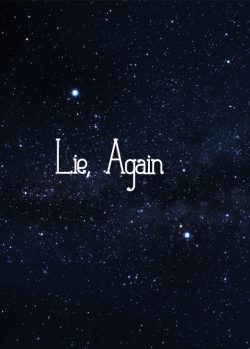DreamOfRen
Well-known member
- Joined
- Aug 29, 2020
- Messages
- 178
- Points
- 83
Hello,
I was thinking on ways that the review system could be "fixed" to prevent griefing and I'd like to share my ideas. What inspired this was a recent profile post and recounting my own experiences.
I had a reviewer once who checked out my stories. I got a 4.3 of 5. Not bad right?
Except... The reviewer said a ton of misleading and at times, outright lies about my fiction. It was almost as if they never read it at all. Even when I messaged them about it, they doubled down and refused to budge.
Only when confronted with their review and the facts side to side did they switch up stances. Also, it was only after this was revealed publicly for others to see.
In other words, they used a "good" review to justify their bias. This is a pretty common tactic for people who just want to snub others openly. The main issue is, you can't fight someone's "feelings" because they aren't rooted in logic or reality at times. What's more, bias doesn't always mean accurate (or inaccurate). To this end, this is what I'd like to propose.
Largely, it comes with 5 features.
Reasons I suggest this:
I'm not sure how much work or how feasible this would be, and I may just be thinking too much like a programmer to "patch" problems. But this is what I came up with. Thoughts?
I was thinking on ways that the review system could be "fixed" to prevent griefing and I'd like to share my ideas. What inspired this was a recent profile post and recounting my own experiences.
I had a reviewer once who checked out my stories. I got a 4.3 of 5. Not bad right?
Except... The reviewer said a ton of misleading and at times, outright lies about my fiction. It was almost as if they never read it at all. Even when I messaged them about it, they doubled down and refused to budge.
Only when confronted with their review and the facts side to side did they switch up stances. Also, it was only after this was revealed publicly for others to see.
In other words, they used a "good" review to justify their bias. This is a pretty common tactic for people who just want to snub others openly. The main issue is, you can't fight someone's "feelings" because they aren't rooted in logic or reality at times. What's more, bias doesn't always mean accurate (or inaccurate). To this end, this is what I'd like to propose.
Largely, it comes with 5 features.
- Force raters to leave a written review with a necessary word count minimum. Urge them to explain their review and why.
- Raters must choose 1 of 2 options when posting their review (Opinion Or Objective). This gets them to commit to declaring their review as one or the other. This should also be mandatory when it comes to leaving a review. This way, if they just felt like writing whatever they want, good or bad, we know. Likewise, if they leave an opinionated review but label it objective--it's obvious.
- Allow authors and readers to mark reviews as "accurate" or "inaccurate" in response.
- Allow authors and readers to also public vote on whether a review is (Opinion Or Objective). Steps 3 and 4 are to allow readers to make better informed decisions by not allowing any one party (authors or reviewers) to control the narrative.
- Allow authors to directly reply back to a review (just one answer which can only be edited for each review).
Reasons I suggest this:
- Ideally all of these changes will serve the purpose of allowing readers themselves to discern whether a reviewer is just up to tomfoolery.
- This one is optional, but you could also give readers reviewer status "well known reviewer" for their work as well, and show the Opinion / Objective ratio on their profiles as such. This way readers would know if a reviewer leans towards Opinion or Objectivity.
- Currently the ability to rate and review is too one sided, as reviewers can leave any rating they want and they don't have to worry about..well...anything. The only real way to fix this is to create a system that at the least, examines the ratings and reviews.
I'm not sure how much work or how feasible this would be, and I may just be thinking too much like a programmer to "patch" problems. But this is what I came up with. Thoughts?


